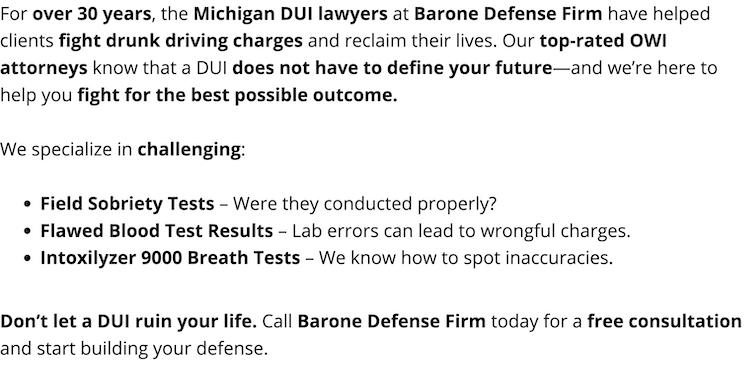Recording a Traffic Stop With Smartphone in a DUI
Dashboard cameras have long been used in police cruisers to capture roadside traffic stops, and body cameras have become increasingly popular over the last several years. These days, though, almost everyone has the capability to record high-quality video on a smartphone. Others have taken it upon themselves to install a Gopro on their own car dash and use it for purposes such as these. But what are the rules surrounding recording traffic stops or encounters with police in Michigan? And when might the recording be admissible as evidence in a trial?
Your Right to Record
In Michigan and across the United States, you are within your constitutional rights to record interactions with law enforcement, so long as you do not hinder or impede officers' ability to perform their duty. This means that you may legally take video of a traffic stop with your smartphone or other recording devices. This does not mean the police won't try to stop you from making such a recording. The police generally do not take kindly to being photographed or video recorded while on duty.
Additionally, the practicality of taking video during a traffic stop may become a factor. For instance, if you are driving alone and are pulled over, officers may become agitated if you are trying to hold a recording device in one hand while fumbling through your wallet or glove box for a driver's license or proof of insurance with the other hand. You may be able to place the phone or camera in a cup holder or prop it up on the dashboard, though. This is one benefit of using a Gopro device pre-mounted to your dash.
Alternatively, if all you have is a cell phone or similar device, then you could have a passenger record the encounter, leaving you free to comply with the officer's requests.
Video Evidence
Just because you record an interaction with police does not mean that the footage will be admissible as evidence in a trial. The rules of evidence will apply, and the admissibility of video evidence will depend on the specific details of the case and the rules of the particular jurisdiction in which the case is tried. Authentication will definitely be an issue, and then there is the issue of the sponsoring witness. You have a right to remain silent and if your case goes to trial, most of the time you will not testify. Videos are not self-authenticating, so if you took the video you would have to take the stand and explain the circumstances or to use lawyer terms lay a foundation for its admission into evidence. Taking the stand for this purpose is almost certain to open up questions that may not be in your best interest to answer, such as whether or not you were intoxicated while making the recording.
However, even if the recording is not allowed as evidence in court, it may still provide your attorney with a different perspective that could help with preparing your case for trial and depending on what's actually captured on the video, its contents might be helpful in plea negotiations. In a worst-case scenario, the video could contain evidence of police misconduct or even abuse.
 Barone Defense Firm Home
Barone Defense Firm Home
















